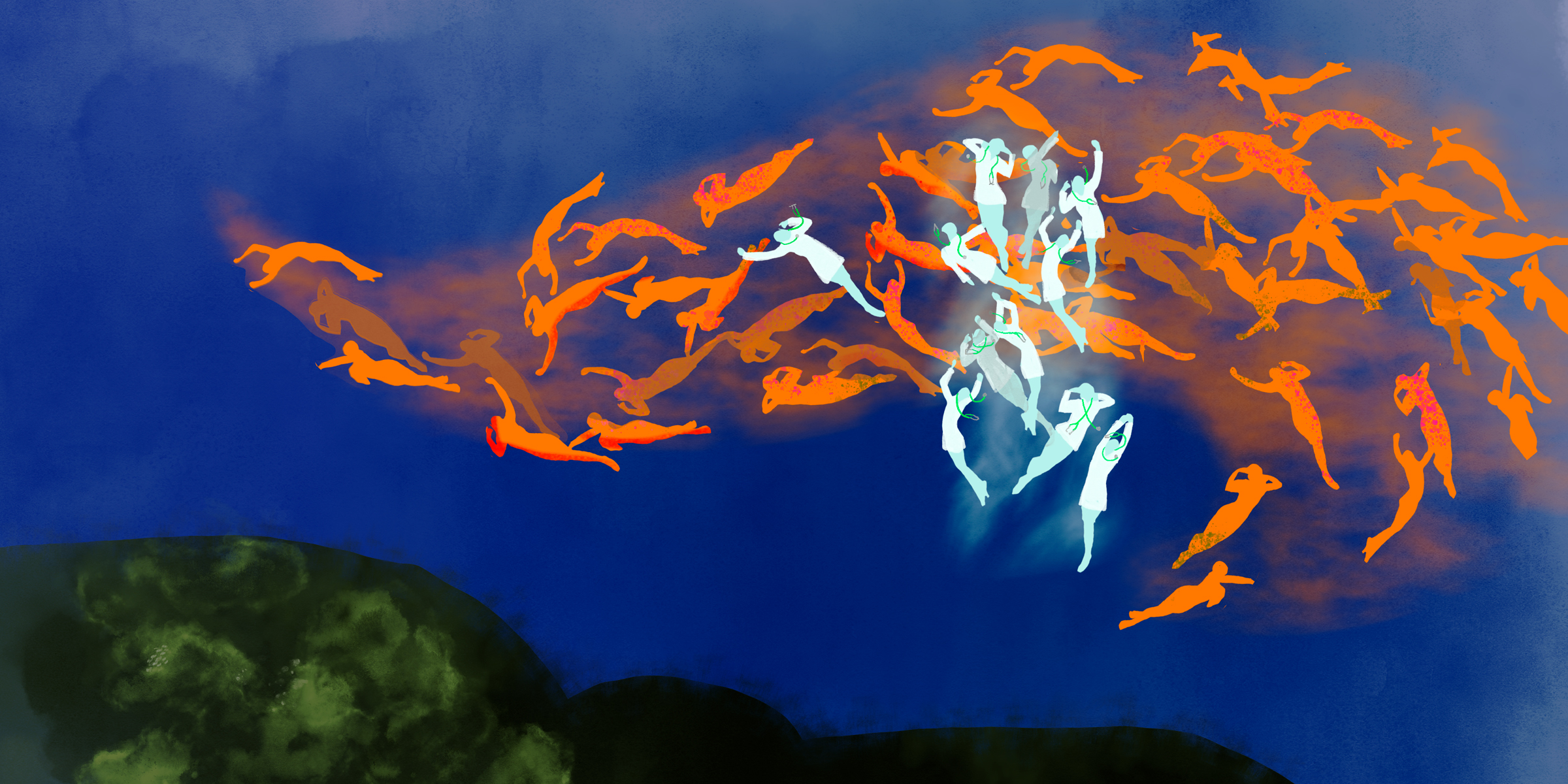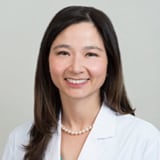 Have you noticed that the friends whom you spend your free time with are in medicine too? When you meet a group of new people, do you find that you gravitate toward others who are also physicians? Is your partner a doctor? If you answered “yes” to any of these questions, you may not realize how you are limiting yourself.
Have you noticed that the friends whom you spend your free time with are in medicine too? When you meet a group of new people, do you find that you gravitate toward others who are also physicians? Is your partner a doctor? If you answered “yes” to any of these questions, you may not realize how you are limiting yourself.
The Situation of Insular Doctor Lives
Getting to be a fully trained physician is a long and arduous process. We are all familiar with the years of school, more years on the wards, constantly studying, increasing responsibilities, the pecking order, and facing life and death decisions. During this process, we are in the trenches: struggling to survive, to maintain self-respect. We’ve lost track of what “normal people” do. We are not “normal” people. Our time is spent almost completely in our work, which is all-consuming, and which ultimately defines us – doing the same thing, for most of our time, and for years on end – this is what we identify as our purpose in life: honing our craft and practicing our skills for the benefit of our patients.
The people who went through this experience with us – our co-residents, co-fellows – usually become our closest friends, at least in the short-run. Our stories, our battle scars, are shared with these people who intimately understand the challenges and stresses that come with the territory in medical training. There is just so much in common with our immediate circle of same-batch trainees, but to some degree, we physicians all have similar stories, just with different names, places, and faces.
It is a survival instinct that people naturally feel the most comfortable and can more easily connect with others who are similar to them. When we reach out to new friends in the real world after our training phase is over, we tend to connect with people who have had similar experiences as we had, the same ways of thinking about things. We even take comfort in complaining together about the same medical subjects — declining reimbursements, the pharmaceutical industry, the hard knocks of practicing solo.
A few years ago, I found myself sitting next to a sports medicine physician at a school fundraiser luncheon. We were probably the only doctors at the event. We immediately began to ask each other about our specialties, about our practices. I remember enjoying how easy, self-satisfying, and comfortable it was to converse and commiserate on the same topics, in this setting where I did not know anybody. And I hardly made any effort connecting with the teacher who was sitting on my other side. It was the path of least resistance, and I did not think anything of it.
By avoiding the challenge of getting to know someone outside your sphere, we suffer from the opportunity to grow our social skills. Instead of sticking to the sports medicine physician for conversation, I could have, should have, stretched myself a bit and engaged in a more in-depth conversation with the teacher – what did she teach? Who did she teach? I could have learned about the challenges she faced from the attitudes of young people today. I could have gained some insight and knowledge about obstacles faced by our educators today, and how our generations are changing with respect to education.
Of course, this is purely hypothetical, but in my narrow state of mind, I was subconsciously thinking, what could a teacher have experienced that is anything like I have experienced? And why would I want to use up so much mental effort to try and find something in common with someone so unlike myself? I now know that mental struggles are exactly what our minds need to grow and learn. But they didn’t teach that in medical school.
If all your friends are physicians, you miss out on more than building social skills. You also gain no exposure to new perspectives and are instead given continual reinforcement of our old perspectives, shaped by medical training. We must remember that as physicians we are in a service profession, wherein we service the world’s health at large. But what are the perspectives held by the majority of the world who are not physicians? It is so important for us to know this, and to understand that we are just a thin layer in a much bigger picture of life.
It’s in this way that we missing what matters to patients. Our patients, whom we serve are part of the “normal” and “regular” people sphere. How can we truly help them if we don’t participate in life at least to some degree, as other non-physicians do? We will not realize what may matter most to people. How can we help people if we don’t see the world and their lives like laypeople? Developing friendships with laypeople will help us to appreciate alternative perspectives in life. By not befriending non-physicians, we limit our own capability. We are capable of far more than we know; yet we do what we know, continuing along the same paths, and we don’t look up from the road we are walking on. We wouldn’t consider doing something else or veering from our career path.
The Positives of People Outside Our Profession
Because we seldom veer from our career path, there are missed opportunities for growth.
We are so good at doing what we do best that our mind’s ability to take new leaps and bounds is less developed than someone in a more creative industry. For physicians to remain on their toes and be open to new possibilities, new treatments, and new approaches, we must exercise our minds more. Ultimately, any mental improvement will make us better doctors, and allow us to help people better than simply learning a compendium of skills.
Finally, staying in a bubble means there is no opportunity to redefine yourself. It is so entrenched in our minds that we are doctors, that most of us have probably never thought of doing something totally different. But most of us have passions unrelated to medicine, so why should friends be any different?
By actively seeking out friendships and human connections with people who are not physicians themselves, you will be able to think more broadly and take in other important perspectives, which will make you more compassionate. You will also find yourself more able to appreciate your patient’s perspective and be better able to serve their needs. Because you have more variety of relationships and knowledge in your head, you will likely become a better problem solver – your mind will be more open to learning, and you will feel comfortable thinking in different ways than a narrow-minded physician. You will find that you are more creative. I know this because I have. If you’re reading this and have realized that you have limited yourself because of surrounding yourself with fellow physicians, don’t be discouraged. This is great news. Now you can work on changing it.
Take on and engage in hobbies. Everyone has activities that are unrelated to work yet they thoroughly enjoy, and may even be passionate about. Was there something you absolutely loved to do, but now it seems there is no time for it? Make time. The non-work related things that you love will keep giving back to you in many intangible ways.
Take charge of your social life. Know that the friends you make during training are not actively selected by you, nor are they people you necessarily sought out and wanted to develop a friendship with. They were just there, and you were stuck next to them to work alongside you, and you made the best of it. Although this sounds crass, these people are circumstantial or situational friends. Great to share their company, but they may not always support you as a parent would. Consider that in some cases, these “friendships” may even have a political bias to them. Now is the chance to take a critical inventory of your circles of friendship. Who would be there for you in a real disaster? Time to re-prioritize.
Read in your spare time. And not medical inspired books or medical journals. Read about the things that are less familiar to you – business, finance, the humanities, the arts, sports.
Take vacations. Going to work meetings does not count. You will never be entirely free to shed your doctor identify and experience things as a regular person if you consider going to medical meetings vacation time. And consider taking vacations with non-physician friends.
Start to see yourself as a person learning about life. Stop seeing yourself as a doctor who sees patients and stop defining yourself as the only thing you have ever done. You are likely capable of much more, it is only a matter of opening up your mind to the possibilities (and friendships).
Dr. Tara McCannel is a vitreoretinal surgeon and ocular oncologist. She likes teaching, running with other moms, and family getaways. Dr. McCannel is a 2019-2020 Doximity Fellow.
Illustration by Jennifer Bogartz







